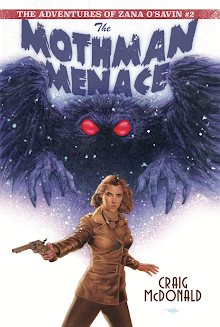
(Author’s note: Rogue Males: Conversations & Confrontations About the Writing Life, is a collection of author interviews. It includes Elmore Leonard, Stephen J. Cannell, Pete Dexter, James Ellroy, Alistair MacLeod, Craig Holden and James Crumley. Rogue Males also features an account of a trip to the desert to interview crime fiction greats Ken Bruen and James Sallis about the craft of writing. During the next few weeks, I’m sharing a little bit about each of the 16 writers featured in Rogue Males.)
My first reading of Woodrell: The Ones You Do. I was a pool fanatic, then, turned onto the game by my grandfather Bill Sipe — ironworker and sometimes hustler — and by a 60 Minutes profile of Texas pool shark Utley Puckett.
The Woodrell dust jacket illustration with its poolroom imagery caught my eye. James Ellroy’s blurb (“A bayou Dutch Leonard”) impelled me to open the book. I read the first chapter, then bought that sucker.
I fell in love with the voice, the atmosphere…the attitude. I tracked down the two earlier installments in what publishers, rather deceivingly, pitched as the Rene Shade “series.” Not an accurate description — they were discrete works that happened to have characters in common.
Muscle for the Wing: a killer opening sentence: “Wishing to avoid any hint of a snub at the Hushed Hill Country Club, the first thing Emil Jadick shoved through the door was double-barreled and loaded.”
I found a copy of Woodrell’s Civil War novel, Woe To Live On — a work that drew comparisons to Pete Dexter’s Deadwood and Cormac McCarthy’s Blood Meridian.
Then I waited for four years for my next Woodrell fix — the sly, semi-autobiographical Give Us A Kiss.
The novel touched on its author’s own experiences in the Iowa Writer’s Workshop — a resume bullet Woodrell shared with another of my favorite crime-inflected novelists, James Crumley.
To me, the two authors represented something precious: authentic, wholly original American voices gifted with poetic tongues tempered by brawny, salty vernacular. Two writers in touch with the ground; knowing and in tune with their chosen regions — the country they so evocatively captured in the pages of their novels.
Woodrell’s great coming of age novel, The Death of Sweet Mister, appeared in 2001, just shortly before I began my years-long series of author interviews. I had to wait until 2006 and the release of Winter’s Bone to finally get a chance to speak with Woodrell directly.
He hadn’t given many interviews at that point — there were just a couple of stray Q&As to be found online…no audio recordings at that time…no filmed interviews on YouTube.
So I really didn’t know what to expect. His male characters might lead one to expect an author with a public persona verging on Ellroy, or Hunter S. Thompson territory.
The Daniel Woodrell I got was something else again: Soft spoken…thoughtful, but candid.
We talked Hemingway. Talked pool…. We talked about craft and career and racial heritage and its possible effects on story and character.
We also talked about genre collars and the perfidious compulsion to type and pigeonhole contemporary authors.
To my mind, Daniel Woodrell stands well outside genre or any easy tags. For me, he’s a major American novelist, period, no qualifiers — one whose influence and reach is growing as more discover his brilliant novels, and, lately, his equally accomplished forays into short fiction.
Daniel Woodrell interview quote: “There are certain experiences you’ve already had now. I remember once, a long time ago, Elmore Leonard saying he didn’t want just another book, he wanted a book that did what he wanted it to do, or something to that effect. That’s more of what I’m feeling now. I’m excited about publishing books that I think are going to give me the opportunity to publish more…more that maybe range more widely afield than this one. I’ll never be very far from dramatic criminal things, probably. But there are so many ways of getting at it, that’s what’s exciting about this world — call it crime writing or whatever you want to call it. I just call it dramatic writing now, because, who knows? I don’t ever seem to come up with an idea that doesn’t at some point have a crime in it.”
NEXT UP: PETE DEXTER






































I've read about five and my favorite is WINTER'S BONE-I know it's his least hard-boiled but the beating heart in it captivated me.
ReplyDeleteI love that novel, too, Patti, and it's still a very tough work. I've read it three times and it's heroine, unfailingly, breaks my heart.
ReplyDelete